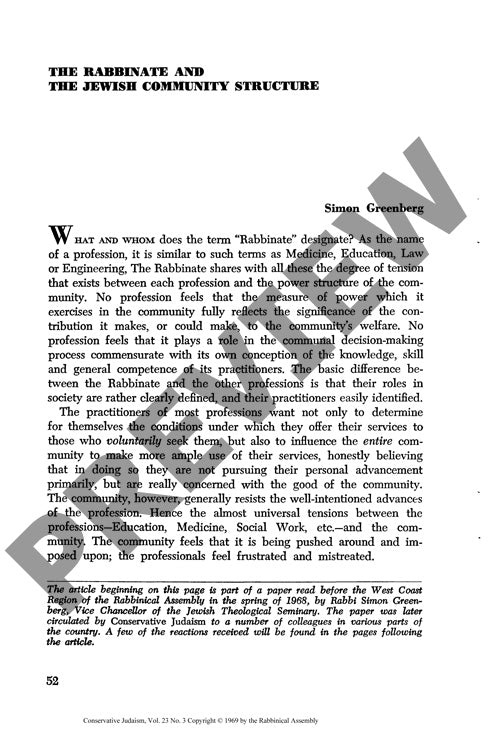The Rabbinate and the Jewish Community S
Couldn't load pickup availability
American rabbis face a profound crisis of professional identity, caught between their traditional spiritual role and the complex demands of modern congregational leadership. Drawing on a 1968 paper presented to the West Coast Region of the Rabbinical Assembly, a comparative analysis with professions like medicine, education, and law reveals persistent tensions between professional groups and community power structures. The American Rabbinate serves three fundamental human needs: helping individuals and communities find meaning in life and the universe, facilitating Jewish integration with broader American society, and preserving Jewish religious and communal identity. Historical analysis shows that understaffing forced rabbis to assume multiple roles as fundraisers, organizers, and community leaders, distorting both rabbinical self-conception and congregational expectations. These expanded responsibilities, combined with unclear role definitions and inadequate philosophical frameworks, have compromised rabbis' ability to meet their communities' spiritual needs. Changing community conditions necessitate a reappraisal of rabbinical roles, emphasizing their primary responsibilities as scholars and spiritual leaders rather than administrators. Effective rabbinical service requires dedicated time for study, meditation, and prayer, supported by congregational understanding. Commentary responses highlight implementation challenges, including inadequate seminary training, structural impediments, and the need for systematic support systems to facilitate this professional transformation.

More Information
-
Physical Description
-
Publication Information
Published 1969
ISBN
-
Publication Credits
Simon Greenberg

